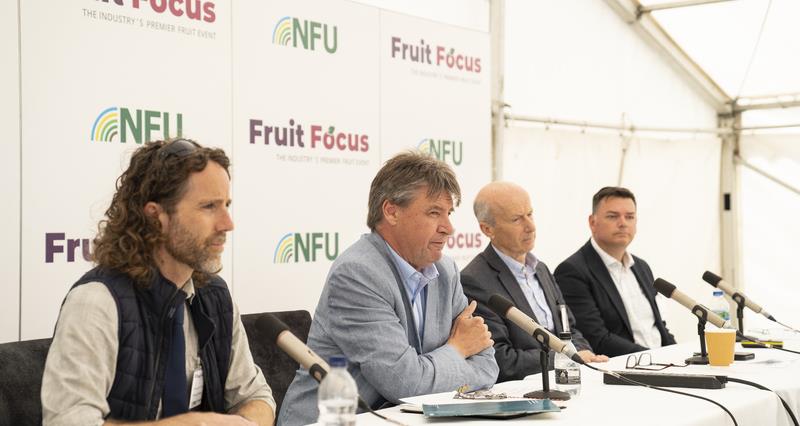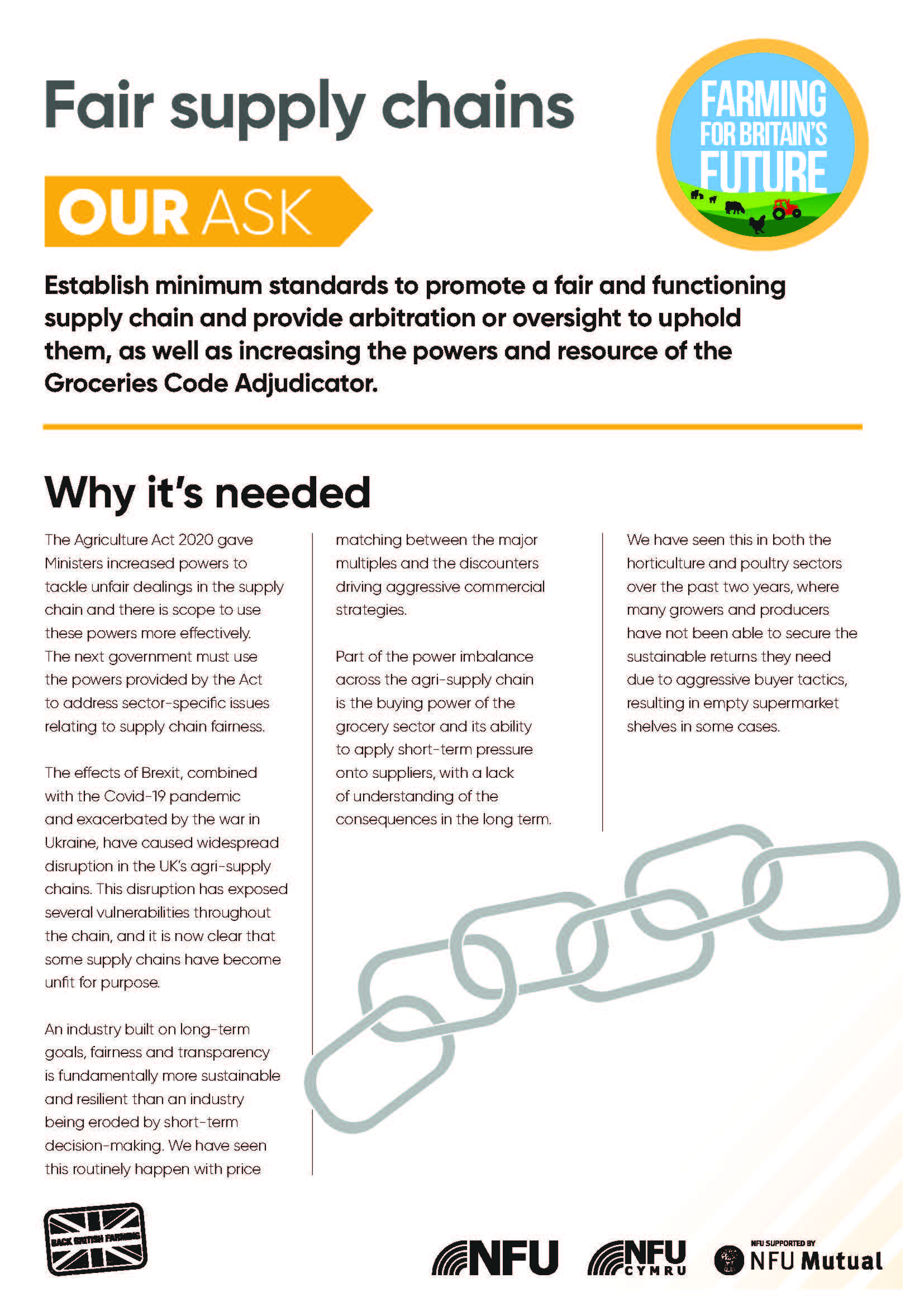The NFU’s involvement with Fruit Focus continues to be a highlight of our summer calendar, and this year was no different.
As hosts of the two key seminars at the event, we were delighted to have such a high calibre of speakers join us.
Enabling Growth for UK Horticulture
For our first session, I was joined on the panel by John Shropshire, Chair of Defra’s Independent Labour Review, and Stephen Jacob, Chief Executive of TIAH (The Institute for Agriculture and Horticulture).
This seminar focussed on the policies that need government support and attention to deliver against our joint ambition for growth. The NFU’s horticulture strategy is key to this; highlighting ten key policies that need addressing to mitigate against current challenges and provide a platform for longer term growth.
Access to a reliable workforce is one of the policies mentioned in the strategy; during the session, John Shropshire was able to bring his views from the independent labour review.
I’m delighted the review makes many recommendations on both seasonal and permanent workers that match our own.
It was also noted during the panel that many other countries also struggle to recruit into the sector, albeit some attract more workers than others.
Seasonal labour will continue to be a challenge for the sector, particularly with the inherent cost and welfare risks of workers coming from further afield. The importance of offering high worker welfare to provide workers with a positive experience, and businesses with certainty of workforce supply, was a key message from the session.
In addition, other aspects surrounding recruitment into the sector were raised. Speaking on TIAH’s upcoming online careers information platform, Stephen shared how it aimed to better equip recruiters and potential newcomers into the sector. An interesting point here was the need for capabilities rather than just qualifications.
Supply chain fairness
Our second session focussed on supply chain fairness, where I was joined by Andrew Powley from Defra and Christine McDowell from the NFU Horticulture team. This seminar focused on the forthcoming Defra supply chain review.
Andrew opened the seminar by giving an outline of the review, which will follow a similar format to those done for the Dairy and Pork sectors.
The review aims to establish if regulation of the supply chain is required within the horticulture sector. It was noted that as our sector is so diverse, it is unlikely for the review to find a single solution, therefore it is possible different actions may be taken for different subsectors.
Talking on the NFU’s activity, Christine gave an overview of what we’re doing on supply chain and how we’re working to support growers, including; cost inflation reports, commissioned by the NFU, to highlight the pressures growers are under; facilitating workshops for NFU members on negotiations and Cost Price Increases; and an emergency supply chain summit which took place at the end of last year and gained significant media coverage.
It was also through the persistence of NFU President Minette Batters, that the No.10 Food Summit took place this spring and resulted in several important commitments for the Horticulture sector.
Retailers’ reaction to cost inflation pressures
Finally, Ged Futter of The Retail Mind gave a presentation on how retailers have reacted in response to cost inflation pressures.
Ged described the volatility and uncertainty of the last year and the unprecedented response from retailers, which saw availability become second priority to price, leading to empty shelves in supermarkets.
The latest results from the Groceries Code Adjudicator survey were also reflected upon, which saw Aldi and Tesco slip down the list of compliant retailers.
My thanks again to all the speakers for joining us for our lively and interactive sessions this year, and to all of you who were able to join us. I hope to see many of you again at the event next year.
See our manifesto asks
Our manifesto
Our general election manifesto – Farming for Britain's Future – outlines our key asks of the next government to ensure farmers and growers can continue to deliver for the environment, economy and local communities while producing more of the great British food we all enjoy.





